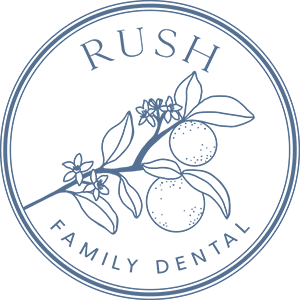How To Find The Best Emergency Dentist In Your Area

Life happens when it happens, and some things won’t wait until it’s convenient. Not every dental problem can wait for regularly scheduled office hours or for your routine bi-annual exams. Finding a provider when you have a dental emergency can be challenging. We recommend searching for an emergency dentist well before you need one and keeping their contact information ready in case you need it.
Considerations for Emergency Dentists
Talk To Your Family Dentist
If your family dentist cannot provide emergency care, ask them for recommendations. Availability and your doctor’s comfort performing certain procedures can vary widely.
Talk To Your Primary Care Physician
Physicians and dentists frequently know each other's work and may be able to guide you to the best providers.
Talk to Family and Friends
Ask your family and friends where they would go if they experienced a dental emergency. Personal referrals are an excellent way to get a feeling for what to expect at a given doctor’s office. Let your friends help you find someone that will fit your needs. They may be able to help you find the right provider.
Search Online Reviews
Online reviews may need to be taken with a grain of salt, but general trends can give you an idea of whether the practice has a positive or negative reputation within the community. Some of them may have also lived through a similar experience to yours and could give you another point of view for the office.
Priority Appointments
If you are searching for an emergency dentist, make sure they can schedule you for a prompt appointment. If they cannot accommodate emergency appointments, you may want to search for another provider.
Types of Emergencies Handled
Call an emergency dentist immediately whenever you are in severe pain or have unexplained oral symptoms. Examples of dental emergencies include:
- Severe toothache
- Extreme hot or cold sensitivity
- Broken teeth
- Broken dentures or bridges
- Bleeding or swelling along the gums
- Pimple-like swellings on the gums
- Oral trauma, such as cuts to the cheeks, lips, and tongue
- Loose teeth
- Knocked-out teeth
- Lost fillings and crowns if they cause severe toothache
- Symptoms of a dental infection
Emergency Procedures We Offer
Toothache
A mild or dull toothache is generally not an emergency. If you experience pain that keeps you from going about your daily activities, you are experiencing a dental emergency.
Severe toothaches can result from broken, cracked, and infected teeth and many other causes.
Dental Abscesses
An abscess occurs when a tooth infection spreads into the gum and bone. Abscesses frequently cause fever, chills, general symptoms of illness, and severe toothache. Emergency dentists may have to extract the problem tooth and treat the patient with antibiotics.
Broken Teeth
A broken tooth means a dental emergency, even if it is not causing pain. Broken teeth may allow plaque bacteria into the pulp chamber, setting the stage for an infection and possible root canal. The sooner you can have your broken tooth repaired, the less likely you will experience complications.
Root Canals
An emergency root canal can relieve pain and restore your oral health. Root canals become necessary when the pulp inside the tooth is exposed or infected. If you let a tooth needing a root canal progress for too long, the infection could spread to neighboring teeth. You may also need the tooth extracted.
Dental Trauma
Accidents and injuries warrant a visit to the emergency dentist. If you have severe injuries to your jaw, face, or tongue, or if you are bleeding, seek care from the emergency room before going to the dentist.
Extractions
If your emergency dentist cannot save your tooth, you may need an extraction. An emergency tooth extraction can relieve pain immediately and make way for an implant or bridge.
Frequently Asked Questions About Emergency Dentistry
If my crown falls out, is it a dental emergency?
A dislodged crown typically does not constitute a dental emergency unless it is causing severe pain. If your crown falls out, find it and bring it to your appointment. In many cases, the doctor can re-cement dislodged crowns as long as there isn’t missing tooth structure or a cavity that was underneath the crown. Saving your original crown can save you a significant portion of the cost of getting a new one.
How can I determine whether my problem is an emergency?
Your dental problem is an emergency if you experience pain that keeps you from living your everyday life. A broken, loose, or lost tooth is also a dental emergency. To be safe, always call your emergency dentist to describe your symptoms and let them decide how soon you need to be seen. If you are experiencing symptoms of a toothache that also include head trauma, fever, swelling of the face or neck, or experiencing difficulty in breathing or an elevated or depressed heart rate, or fainting spells, please proceed to an emergency room as soon as possible. Dental emergencies can, on rare occasions, be life threatening and should not be taken lightly.
Contact Rush Family Dental
Dental emergencies cause great anxiety, but if you already have an emergency dentist, you will have a practice to call if you encounter unexpected difficulties. Please contact us at one of our convenient Phoenix-area locations today.
